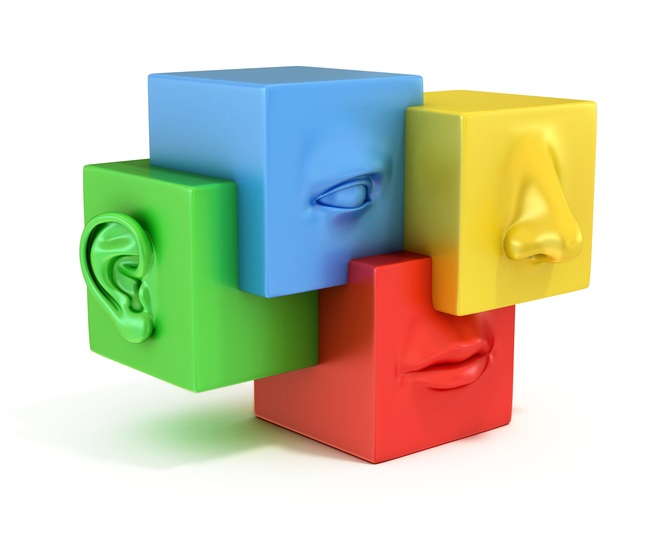Looking for more information on sensory processing dysfunction? We review recent research that may help!
Read "New Research in Sensory Processing Dysfunction" at chadd.org/Understanding-ADH... for what we found out.

Looking for more information on sensory processing dysfunction? We review recent research that may help!
Read "New Research in Sensory Processing Dysfunction" at chadd.org/Understanding-ADH... for what we found out.
Thank you for spotlighting this research since it is addressing one of the most misunderstood subgroups of those who fit the criteria for ADD. It took me three years of working with a few hundred clients (and also my daughter) and hundreds of pages of researching and reading primary literature that had anything to do with sensory over-responsivity or sensory processing dysfunction to try to figure out what was going on with sensory sensitivities. I call what I see in about 10% of the ADD population sensory amplification syndrome. That would mean I am not yet looking at sensory muting or other sensory distortions. Just trying to get my understanding and treatment protocols for problematic sensory amplification up to date with the literature.
So far, when the client I am working with scores high on a sensory sensitivities rating sheet that I developed, whether they also fit the criteria for an ADD or ASD or OCD or ODD diagnosis, the sensory amplification that is taking place can be modified with CNS norepinephrine modifying medications called clonidine and guanfacine. Clearly, sensory amplification exists and it makes for an even more distractible brain than the ADD brain without the sensory amplification going on. You can imagine what a louder or stronger sensory signal would do to anyone, whether fitting other diagnostic criteria or not.
I am afraid you won't hear this information from anyone else yet. I have not been able to find any published literature specifically on sensory amplification and the ADD brain. However, there is a huge amount of literature on how norepinephrine processes contribute to "vigilance" and the best or most sensitive vigilance is based on sensory amplification. There is also some very good literature on the locus coeruleus and its role in norepinephrine processes and presence in the brain.
I use this analogy to help my clients and readers understand the SAS condition. 400 years ago, they would have been chosen as a tribal scout, able to see sooner, hear better, taste and smell better ("don't drink this water, has something in it"), and also inexplicably capable of monitoring the environment (think human "radar") even while allegedly sleeping. There is no place for such sensory abilities in the usual environments we find ourselves in these days. It would just be a huge overload of sensory data, which, if you get into really good conversations with such SAS folks, you will find out they feel constantly attacked and you will also notice that they are often automatically "bracing." It makes for a kind of rigid posture when you are automatically braced against the attack of overamplified sensory data. Talk about a need for personal space, and less input. Also, think "mountains out of molehills."
It also makes for what I call the very light sleeper type, whose ideal sleep environment might be the walk in closet at home -- quiet, totally dark, no movements of pets or people. Often, their sleep is fragmented, on top of difficulty getting to sleep (the ADD brain). So, what a catch-22 this group experiences. The ADD brain will allow sleep more readily if it is occupied with a constant kind of low-level background noise (fan, fountain, etc. "white noise") but if SAS is in the mix, getting to sleep might be possible with white noise, but it will then, later, wake that light sleeper up and make it difficult to get back to sleep.
One other catch-22 is that all the dopamine enhancer medications will increase what is called extracellular dopamine which is a key to optimizing working memory in the ADD brain. One thing that happens when you increase extracellular dopamine is there is more of it available to be trashed (metabolized) by enzymes that do that. When dopamine is trashed by one of those most powerful enzymes, it is converted first into norepinephrine. That means that many of the dopamine enhancers (and certainly the NE enhancers) can make sensory sensitivities worse.
Although the researchers in this article are looking at structural differences, and wondering if something can assist in those instances, the sensory sensitivities and amplification that I have learned about is modifiable by modifying CNS NE processes with the correct dosage of either clonidine or guanfacine, primarily at bedtime, but also, quite often in the daytime if there are no significant side effects.
I am hoping that much more work is done in this area since that particular ADD population can be subject to a large amount of polypharmacy and diagnostic dilemmas. BTW, present in both children and adults.